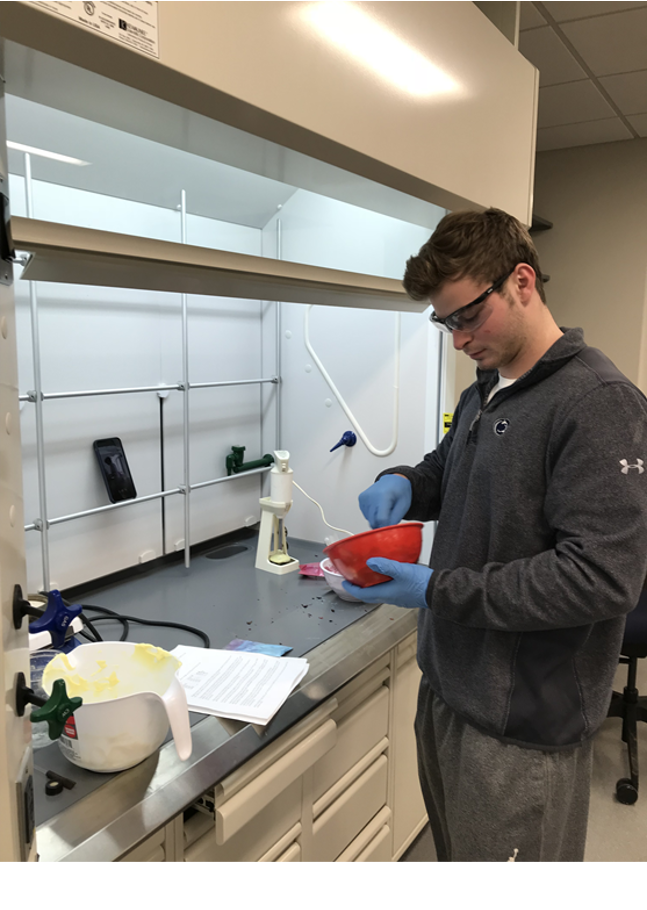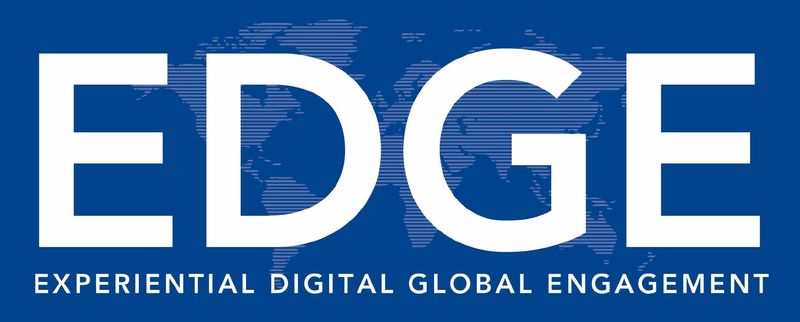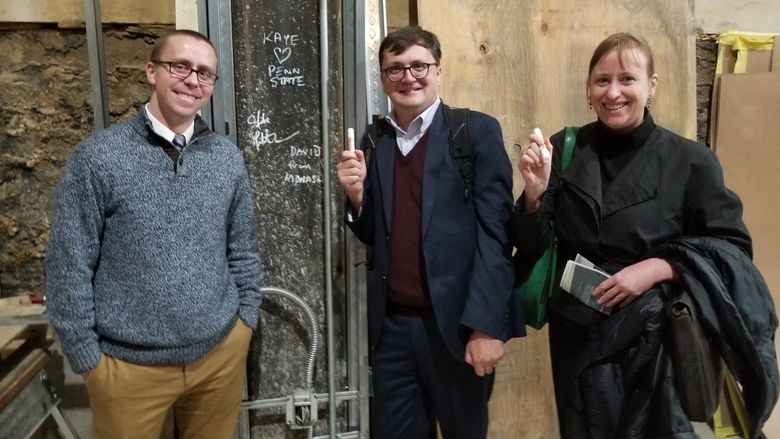MONACA, Pa. — When the coronavirus pandemic hit, forcing everything to go remote and virtual, units at Penn State had to scramble to find solutions to fit the new reality. This was especially hard for units with a global and travel focus, as international travel has been severely limited since the start of the pandemic.
However, one established program in particular was uniquely prepared for the new virtual world: EDGE, or Experiential Digital Global Engagement.
EDGE began in 2018 with one EDGE collaborative project between Claudia Tanaskovic at Penn State Beaver and the University of Split, Penn State’s strategic partner in Croatia. Since then, 18 EDGE projects have been delivered between Spring 2018 and Fall 2020, offered by faculty across five Penn State campuses.
What is EDGE?
EDGE collaborative projects — often interdisciplinary — group students from Penn State together with students from different international universities to work on a specific project together. It was adapted from SUNY’s Collaborative Online International Learning (COIL) approach. EDGE collaborations happen virtually — neither group leaves their home country during the duration of the project.
“It’s a great way to offer global engagement opportunities for students who may not be able to do a classic study abroad,” said Tiffany MacQuarrie, assistant teaching professor of English at Penn State Beaver, who is the professor in charge of EDGE.
Projects cross a wide variety of disciplines. Recently, students from IST worked with ecology students from Kazakhstan to develop an app to help farmers in Kazakhstan know when to plant crops. Another program, run by John Chapin, professor of communications at Penn State Beaver, with a counterpart at the Université Paris Nanterre, focused on intercultural understanding through interviews and written essays.
“This was actually one of the coolest things I’ve done during my time at Penn State Beaver,” said one student from Chapin’s program. “It really helped broaden my horizons.”
EDGE and Global Penn State
At Penn State, the name EDGE emphasizes its connection to Penn State's strategic priorities, specifically “transforming education,” “enhancing global engagement” and “empowering through digital innovation.”
EDGE provides students opportunities to engage with the world — especially during times of limited, unpredictable mobility — regardless of student resources. When travel resumes, EDGE projects can still be a way to engage lesser-resourced students who may not be able to study abroad. EDGE collaborations can also serve as a precursor to study abroad and be connected to Penn State’s embedded programs.
“Statistically, only about a quarter of Penn State students will go abroad during their academic career,” said Brian Brubaker, director of Education Abroad in Penn State’s Office of Global Programs. “We’re always excited to support new and innovative ways to engage students globally, even if they never physically leave Pennsylvania.”
“Our students learn how to interact with people who are different from them and work with them on projects over a distance,” said MacQuarrie. “They develop their intercultural competence as well as their digital skills, intercultural interaction, project collaboration, and distance collaboration.”
EDGE partnerships also benefit faculty, as the collaborations create content for research as well as publications and presentations. It is an innovative, student-centered pedagogy that allows faculty to play an important role in internationalizing the curriculum. Working with an international partner also helps to broaden faculty perspective and provides further opportunity to reflect on course content, assignments, and delivery.
National recognition
Penn State’s EDGE program is already recognized as a strong model in international virtual exchange. Opportunities and invitations to present EDGE at the national and international level include the recent American Councils for International Education’s invitation to share EDGE with a select group of 37 Russian higher education administrators in January 2020 for their Virtual University Partnerships (UniVIP) network.
Additionally, EDGE was featured in a webinar American Council on International Education sponsored in August 2020 entitled “Getting to What Matters Most: How to Sustain and Scale VE/COIL Partnerships.” EDGE collaboration with Saken Seifullin Agrotechnical University in Kazakhstan was featured on American Councils for International Education’s website in their article “Building Virtual International Partnerships in Higher Education” dated June 9, 2020.
Several events have been coordinated with international partners to help Penn State and international faculty learn more about EDGE and to cultivate potential EDGE collaborations, such as two faculty networking events with universities in Colombia: the first one held in October 2020, partnering with Universidad de Bogotá Jorge Tadeo Lozano (UTADEO) in October, and the second one in December 2020, partnering with UTADEO in addition to two new partners, University of Antioquia and University of EAN.
The future of EDGE
The EDGE program is always looking for faculty interest and new partner institutions, MacQuarrie said, and is planning to host a faculty summit in April. Penn State and the Université Paris Nanterre will co-host the summit, which will be supported by the French U.S. embassy and the Fulbright Commission Franco-Américaine, on April 8.
Interested faculty can register for this event here to learn more about international project-based virtual exchange, connect with international faculty for potential EDGE collaborative projects, and learn about grant opportunities for collaborating partners.
Even after the pandemic, EDGE looks to grow in order to offer a different avenue for global engagement.
“It’s ambitious, but my goal is that every Penn State student, at some point in their academic career, will have been able to participate in an EDGE project,” said MacQuarrie. “The time is ripe for this type of collaboration, and we’re only looking to grow from here.”
For more information on EDGE, visit the EDGE website or email [email protected].


